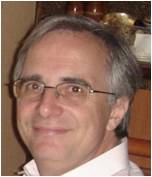
Carlos Delgado Kloos received a PhD degree in Computer Science from the Technische Universität München and a PhD degree in Telecommunications Engineering from the Universidad Politécnica de Madrid. He is currently Full Professor of Telematics Engineering at the Universidad Carlos III de Madrid, Director of the UNESCO Chair “Scalable Digital Education for All”, Coordinator of the eMadrid network and Director of the on-line Master in “Management and Production in e-Learning”. Additionally, he is Vice-President for Strategy and Digital Education. His main research interest focuses on Technology-Enhanced Learning.
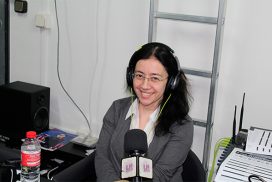
Carmen Fernández-Panadero is an associate professor of Telematics Engineering at Universidad Carlos III of Madrid. She has a degree in Physical Sciences from Universidad Complutense of Madrid and a PhD in Communications Technologies from Universidad Carlos III of Madrid. She has been working for Andersen Consulting in projects related with multimedia technology and Internet programming. Since 1999 she works at the Department of Telematics Engineering at the Carlos III University of Madrid (UC3M) where she has participated as researcher in several national and international projects. Her main research interests include dynamical systems characterization, creative learning environments (simulators, 3D-virtual worlds, mixed reality) and the use of gamification and storytelling to orchestrate learning experiences and provide transmedia learning outcomes.
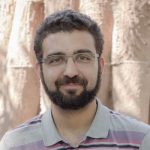
Carlos Alario-Hoyos is a postdoctoral researcher and teaching assistant in the Department of Telematics Engineering at the Universidad Carlos III de Madrid with the fellowship Alianza 4 Universidades. He received M.S. and PhD degrees in Information and Communication Technologies from the Universidad of Valladolid, Spain, in 2007 and 2012 respectively. His main research interests include MOOCs, interoperability and software educational tools. During the last year he has been involved in the design and enactment of MOOCs deployed in the platform MiríadaX.
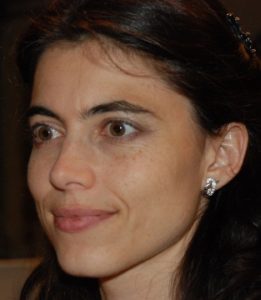
Raquel M. Crespo García is Associate Professor in the Telematics Engineering Department at the University Carlos III of Madrid. She received her MSc degree in Telecommunications Engineering from the Technical University of Madrid in 1999 and her PhD degree in Communications Technologies from the University Carlos III of Madrid in 2007. She has been involved in a number of European, national and regional research projects, mainly related to technology enhanced learning. Her current research interests are in adaptation, intelligent tutoring systems, computer supported collaborative learning and learning analytics and educational data mining.
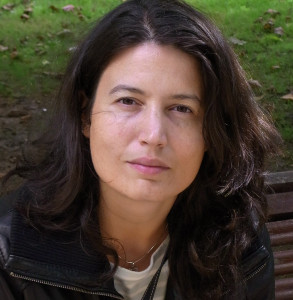
Iria Estévez-Ayres is an assistant professor at the Telematics Engineering Department at Universidad Carlos III de Madrid. She obtained her Telecommunication Engineering degree from Universidad de Vigo in 2001 and her PhD from Universidad Carlos III de Madrid in 2007. After several years working in the research field of Distributed Real-Time Systems, with a focus on the applicability of service-oriented architectures to real-time and networked embedded systems, she switched her research interests to the field of Technology-Enhanced Learning, focusing on m-learning, MOOCs, and on the applicability of technology-enhanced techniques to active learning courses.
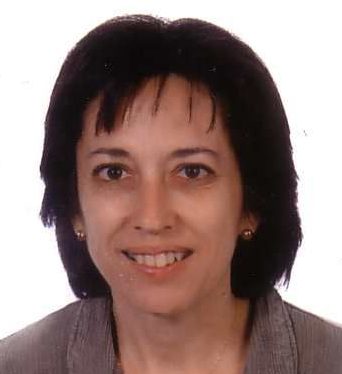
María Blanca Ibáñez is a Visiting Professor in the Department of Telematics Engineering at the Universidad Carlos III de Madrid. She received her Ph.D. degree in Computer Science from l’Institut National Polytechnique de Grenoble (France), and her B.Sc. and MsC. in Computer Science from the Universidad Simon Bolivar (Venezuela). Her main research interests are the use of MUVEs and augmented reality for education.
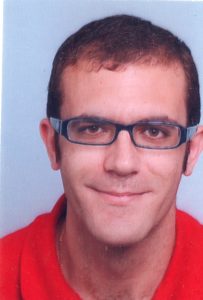
Pedro J. Muñoz-Merino is a Visitant Associate Professor at the Universidad Carlos III de Madrid. In 2003, he received his Telecommunication Engineering degree from the Polytechnic University of Valencia, and in 2009 his PhD in Telematics Engineering from the Universidad Carlos III de Madrid. He obtained his acreditation in May 2012 as Associate Professor by the ANECA agency from the Spanish Ministry of Education. He has also received several awards like the AMPER award for the best Master Thesis in Telematics Engineering or a special PhD award by Universidad Carlos III de Madrid. He has made two long research stays: one in Ireland for more than 3 months at the Intel company in 2005, and another in Germany for more than 6 months at the Fraunhofer Institute of Technology in 2009-2010. In addition, he is author of more than 70 scientific publications and has participated in more than 20 research projects. He has been PC member of different conferences and invited as a speaker in different events in topics related to learning analytics and educational technologies. He is also an IEEE Senior Member from 2015. His skills and experience include research and development in learning analytics, educational data mining, evaluation of learning experiences, user studies, gamification or Intelligent Tutoring Systems. You can contact him at twitter at @pedmume.
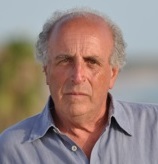
Antonio Rodríguez de las Heras received a PhD degree in Philosophy and Literature from the University of Salamanca. He is currently Full Professor of Humanities, Comunication and Documentation at the Universidad Carlos III de Madrid and Director of the Institute of Culture and Technology at the University Carlos III of Madrid. He has been Dean of the Humanities, Comunication and Documentation Faculty at the same university and Director of the last 15 editions of the Master in Audiovisual Business Administration. He is author of several e-books; among them: “Por la orilla del hipertexto” y “Los estilistas de la sociedad tecnológica”. His work focuses on how society is being formed by the effect of technology and the consequent cultural and educational changes that occur and that should produce.
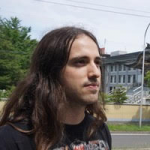
Jorge Peláez was given his B.Sc in Telematic Engineering from Universidad Carlos III de Madrid in 2017. Currently is researching about how to apply Augmented Reality technologies and gamification into education to achieve motivating and efficient learning. To accomplish this goal, he is developing Android portable devices applications and web applications using Unity environment.
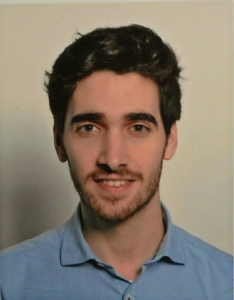
Jesús Manuel Gallego Romero is a Research Assistant of the Gradient group in the Telematics Department of Carlos III University. He received his BSc in Telecommunication Technologies Engineering at the same university, where he is currently finishing a double MSc in Telecommunication Engineering and Telematics Engineering. His area of research focuses on the integration of external tools to enhance interaction in Massive Open Online Courses (MOOCs).
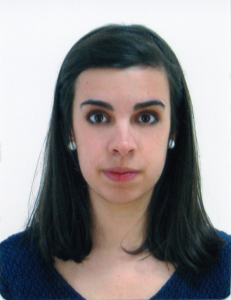
Ainhoa Velacoracho Velasco has a degree in Telecommunications Technology Engineering since 2015 from the University Carlos III of Madrid. Afterward, he worked for a year and a half in the company Hi-Iberia of Madrid, developing engineering projects in the e-health environment. In 2017 he started the Master in Telecommunication Engineering at the University Carlos III of Madrid. She is currently working on the Final Master Project in the Telematics Engineering Department, where she is hired as a Research Support Technician, carrying out a project about the application of the IRT methods in e-learning environments.

José Antonio Díaz Jaime received his Bachelor’s degree in Audiovisual Systems Engineering from Universidad Carlos III de Madrid. He is currently working at the Department of Telematics Engineering at Carlos III University of Madrid and finishing his Master Degree in Telematic Engineering. His current interests include among others technology enhance learning, the design of virtual worlds and simulation environments, and adaptive learning. His current work focuses especially on technological support to learning management systems.
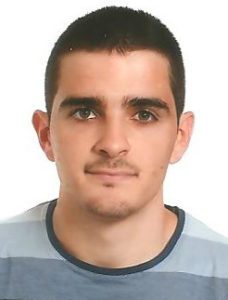
José Antonio Gascón Pinedo received his BSc and MSc in telecommunication engineering at Universidad de Alicante and Universidad Carlos III de Madrid respectively. He is currently working like Research Assistant in the Department of Telematics Engineering at Universidad Carlos III de Madrid and finishing his Master Degree in Telematic Engineering. He is collaborating in European Project SHEILA and he is a member of the eMadrid. Nowadays, his research is focused in learning analytics, visual analytics and educational data mining.
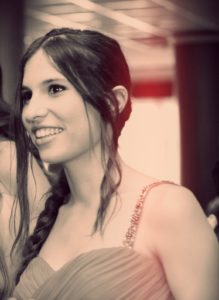
Ruth González Novillo received her BSc and MSc in telecommunication engineering at Public University of Navarre and Carlos III University of Madrid respectively. Se has worked in Volkswagen Navarra and Public University of Navarre as an intern. Now she is working as a Research Assistant at the Department of Telematics Engineering at Carlos III University of Madrid.
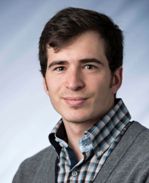
José A. Ruiperez-Valiente completed his BSc and MSc in telecommunications engineering at Universidad Catolica de San Antonio and Universidad Carlos III de Madrid (UC3M) respectively. He has worked both in the private (Accenture and Group Multimedia Vocento) and public sector (UC3M). Right now he is a PhD candidate at UC3M and Research Assistant at Institute IMDEA Networks. He has also done a research stay of 3 months at MIT. As a student he has received several awards which prove his learning and solving problem capacities. He has also published in several important Journals and Conferences related to his main fields of research. His research is focused nowadays in learning analytics and educational data mining.
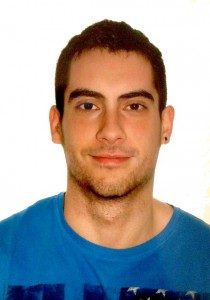
Diego Villarán Molina received his B.Sc. Telecommunication Engineering degree from the Universidad Carlos III de Madrid in 2012. Currently Research Assistant in the Universidad Carlos III de Madrid within the Gradient laboratory. Involved in developing Augmented Reality solutions for mobile devices for educational purposes. His research interests lie in developing Augmented Reality applications for portable devices (currently for Apple iOS devices), creating and programming 3D environments and interfaces for the students to easily comprehend difficult or ambiguous concepts.
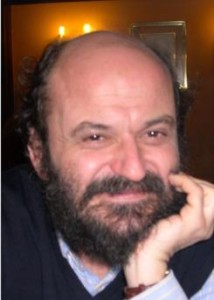
Yannis A. Dimitriadis (PhD, 1992) is the coordinator of the GSIC/EMIC research group, Full Professor of Telematics Engineering and Director of the School of Doctoral Studies at the University of Valladolid. His current research interests include technological support to the orchestration of computer-supported collaborative learning processes, design for seamless learning in multiple spaces, the analysis of scalability issues in learning systems, and the optimal organization of groups in massive learning environments.
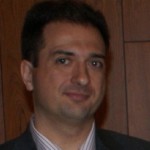
Juan I. Asensio-Pérez received his MSc and PhD degrees in telecommunications engineering from the University of Valladolid, Spain, in 1995 and 2000 respectively. He is currently an associate professor at the Department of Signal Theory, Communications and Telematics Engineering, University of Valladolid. His main research interests include technology-enhanced learning, with special focus on the support for full-lifecycle Learning Design processes, including the automatic setting up of physical and/or virtual learning environments at different scales.
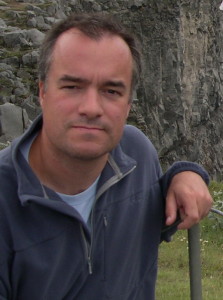
Eduardo Gómez-Sánchez received his MSc and PhD degrees in telecommunications engineering from the Universidad de Valladolid, Spain, in 1996 and 2001 respectively. He is currently an associate professor at the Department of Signal Theory, Communications and Telematics Engineering, Universidad de Valladolid. He has researched on distributed applications for collaborative learning, and is now interested in the seamless integration of multi-party tools into scalable learning platforms, notably Virtual Learning Environments and MOOC platforms.
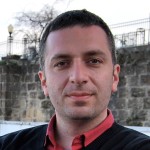
Miguel L. Bote-Lorenzo received his MSc and PhD degrees in telecommunications engineering from the Universidad de Valladolid, Spain, in 2001 and 2005 respectively. He is currently an associate professor at the Department of Signal Theory, Communications and Telematics Engineering, Universidad de Valladolid. His main research interests include distributed systems and their application for the support of learning, with special focus in CSCL and tool integration in Learning Management Systems.
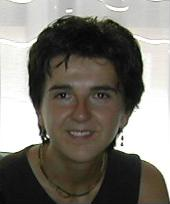
Alejandra Martínez Monés, PhD, is associate professor of computer science at the University of Valladolid. Her research interests in the field of Technology-Enhanced Learning relate to how to use computers to support teachers and students in the application and evaluation of innovative teaching and learning strategies, especially CSCL situations. Her research contributions include the use of Social Network Analysis to support the evaluation of CSCL environments; the integration of scripting and monitoring strategies to enhance classroom orchestration, the use of augmented reality to support seamless integration of learning spaces; and the application of mixed methods to evaluate CSCL and other complex learning situations.
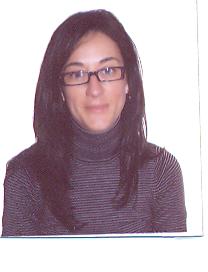
Inés Ruiz Requies obtained her doctorate in 2009 at the University of Valladolid (Spain). Nowadays is an associate Professor in this university. Her main research interests are the Computer-Supported Collaborative Learning and educational innovation in school contexts. Other of her lines of research are the importance of the ICT in the teaching-learning process and the development of competencies in the initial formation of the teaching staff.

Juan A. Muñoz-Cristóbal received the B.S. degree in telecommunications engineering, the M.Sc. degree in ICT research and the Ph.D. degree in information and telecommunications technologies from the University of Valladolid, Spain, in 1998, 2010 and 2015 respectively, the M.Sc. degree in Free Software from the Open University of Catalonia, Spain, in 2010, and the MBA degree from the EAE Business School and the University of Barcelona, Spain, in 2012. He is currently postdoctoral researcher at the University of Valladolid. His main research interests include the role of the scale in the seamless integration of different physical and virtual learning spaces.
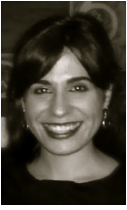
Sara Villagra Sobrino, Ph.D received the degree in Pedagogy from the University of Oviedo (Spain) in 2006. She is an assistant Professor at the University of Valladolid since 2008. His current research efforts are devoted to the study of the educational implications of technology enhanced learning (TEL) scenarios with special emphasis on fostering teacher’s skills during the design and the enactment of flexible CSCL activities in Primary Education settings. She is also interested in Mooc orchestration regarding the analysis of learning situations which take place in different scales.

Sara García Sastre, Ph.D, is Assistant Professor in the Department of Pedagogy at the College of Education and Social Work (University of Valladolid) (Spain), where she teaches ICT to preservice teachers. Her main research interests are within the CSCL field, specially in the development of preservice teachers key competences in the use of ICT. She´s also an active member of Center for Transdisciplinary Research in Education (CETIE-UVa) (http://www.cetie.uva.es).
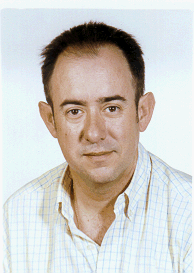
Bartolomé Rubia Avi has a PhD in Curricular Design and Educational Research from the University of Valladolid and Degree in Philosophy and Educational Sciences from University of Granada. He is currently Associate Professor at the University of Valladolid (Spain), and Director of Centre for Transdisciplinary Research in Education (CETIE-UVa) (http://www.cetie.uva.es). He is research interested in educational implications of computer-supported collaborative learning scenarios, with special attention to new ways of evaluating these particular settings.
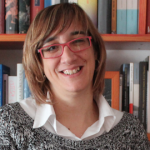
Rocío Anguita Martínez received her PhD degrees in Education from the Universidad de Granada, Spain, in 1995. Her main research interests are the Computer-Supported Collaborative Learning and gender studies in education. Other of her lines of research are the importance of the ICT in the informal learnings in young people.
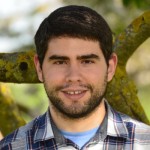
Rafael Cano-Parra received his BSc and MSc degree in Computer Science, and his MScRes degree in Information and Communication Technologies, all of them from the Universidad de Valladolid, Spain, in 2009, 2011, and 2012, respectively. He is currently a PhD candidate at the Departamento de Teoría de la Señal y Comunicaciones e Ingeniería Telemática, Universidad de Valladolid. His main research interests include cloud computing and its application for the support of learning, with special focus on helping teachers to integrate other than Software as a Service tools in Virtual Learning Environments.

Osmel Bordiés López received his B.S. degree in Telecommunications Engineering from the Universidad de Oriente, Cuba, and his Master of Advanced Study (DEA) degree in Information and Communication Technologies from the University of Valladolid, Spain, in 2002 and 2010 respectively. He is currently a PhD candidate at the Departamento de Teoría de la Señal y Comunicaciones e Ingeniería Telemática, Universidad de Valladolid. His line of research spins around the conceptual and technological support for teachers in designing and particularizing complex CSCL scenarios.
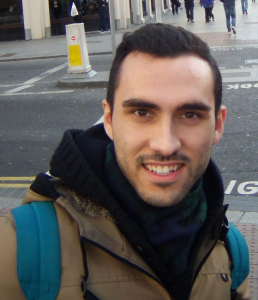
Alejandro Ortega-Arranz received his BSc and MSc in telecommunications engineering from the Universidad de Valladolid, Spain, in 2014 and 2015 respectively. He is currently a PhD candidate at the Universidad de Valladolid. His main research interests include game-based learning and gamification methods and technologies.
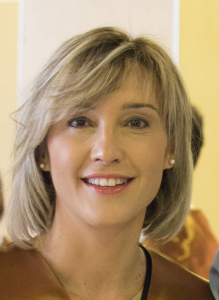
Luisa Sanz is a PhD candidate, with interest in MOOC orchestration, in particular work on group formation and transformation during a MOOC lifecycle.
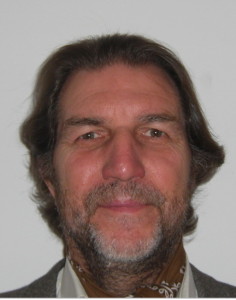
Josep Blat is a professor of Computer Science at Universitat Pompeu Fabra (Barcelona), where he founded its Engineering School and ICT Department, and was head of both. Graduated in Maths from València, he got his PhD from Heriot-Watt, Edinburgh, and was post-doc at Université Paris-Dauphine. Josep was head of the Maths & CS Department at Universitat de les Illes Balears for several years. He leads the research group in Interactive Technologies with activity in graphics, HCI and learning.
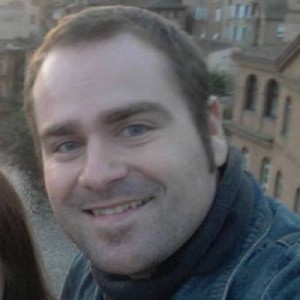
Jonathan Chacón is a member of the Interactive Technologies Group (GTI) of Pompeu Fabra University (UPF) in Barcelona. He holds a Computer Science Degree (2009), Master in Technology on Information, Communication and Audiovisual Media (2010), and has been awarded with arguably the highest competitive grant (Spanish Government) for carrying out his PhD. He has been collaborating with the GTI since 2007, conducting computer administration tasks to assist research project requirements. He also participated in the ICT IP European project TENCompetence, deploying and configuring the project infrastructure to support pilots. He is involved first in the LdShake team and later in the ILDE team (Learn3, EEE, METIS, IJIE projects). His research area is focused on educational technologies, with an emphasis on mechanism that can support Teachers’ communities in Learning Design Ecosystem. Particularly, focussing on supporting re-use of designs by teachers, mechanisms to guide teachers within LD Ecosystem and how can these designs and practices interoperate with each other.
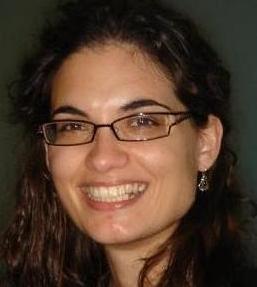
Davinia Hernández-Leo is Associate Professor and Serra Húnter Fellow in the Department of Information and Communications Technologies at Universitat Pompeu Fabra – Barcelona (UPF) where she coordinates the Educational Technologies research section of the Interactive Technologies Group. She is also Deputy Dean of the UPF Engineering School and the head of its Unit for Teaching Quality and Innovation. She received the PhD degree in Telecommunication Engineering from the University of Valladolid (2007) and has been a visiting scholar at the Open University of the Netherlands (2006), Virginia Tech (2012, Fulbright) and the University of Sydney (2015). Her research lies at the intersection of network and computer applications, human-computer interaction, and learning sciences, with a special focus on Learning Design, Computer-Supported Collaborative Learning, teaching communities, technologies for scalable pedagogy, interoperability and devices for learning.

Alun Evans is the coordinator of the Graphics sub-group in the GTI. After completing his PhD in Medical Image Processing from University College London, he carried out post-doctoral work in Interactive Art, and Automatic Virtual Character Animation, before starting his work at UPF. His current research interests are focused on Character Animation, Serious Games and 3D Graphics.

Mar Carrió Llach is a visiting professor at the Department of experimental and health sciences at Universitat Pompeu Fabra (UPF). Member of the Health Sciences Educational Research Group (GRECS), coordinator of the Master degree of pre-service science teacher training, coordinator of the problem based learning courses in Human Biology Degree at the Faculty of Health and Life Sciences at UPF and the head of its Unit for Teaching Quality and Innovation. Mar is also a member of the Informatics Technology and Science Education research group (TIREC) from the Universitat Autònoma de Barcelona (UAB). She had her PhD in biotechnology on 2003 at the UAB and afterwards she specialized in science education. Actually her research area is focused on designing learning environments for collaborative and inquiry based learning methodologies and science teachers training.
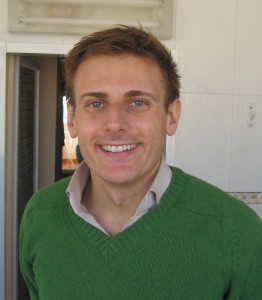
Manel Jiménez-Morales is a lecturer on Film and Television of the Universitat Pompeu Fabra (Barcelona) since 2000. He holds a PhD on Social Communication from this University, a Masters of Advanced Studies in the same field, and two undergraduates degrees: Audiovisual Communication (UPF) and Comparative Literature (Universitat de Barcelona). Doctor Jiménez-Morales has also been a Visiting Scholar in the Department of Literature in the University of Oxford (United Kingdom) and the Department of Theatre, Film and Television in the University of California, Los Angeles (UCLA), and contributed to a research for the British Film Institute (London). At this moment, he is the Delegate of the Rector for the Introduction of New Technologies in the Universty and Assistance to the Responsible of Research in the Department of Communication. His tasks as an academic extend to several lectures in national and international universities. He is also the codirector of the Masters in Writing Humor and Entertainment for Television, organised by El Terrat, one of the biggest production companies in Spain, and helped to create the Masters in Quality and Innovation on Television, coordinated by the Catalan public television (Televisió de Catalunya).
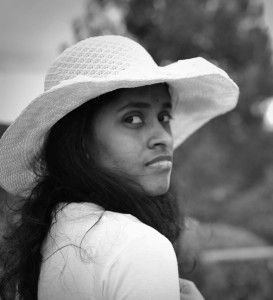
Kalpani Manathunga is a PhD student from Interactive Technologies Group in the Department of Information and Communication Technologies at Universitat Pompeu Fabra, Barcelona. She holds a Bachelor´s degree in Information Technology from Curtin University,Australia and has completed her Master of Computer Science from University of Colombo, Sri Lanka. Her main research Interests are Learning Technologies, Computer Supported Collaborative Learning, technological solutions for scalable pedagogies, Collaborative flow patterns and learning design.

Laia Albó is an Audiovisual Systems Engineer from the Universitat Pompeu Fabra (UPF). She has a master’s degree in Education and ICT (e-learning) from the Universitat Oberta de Catalunya (UOC). One of its main objectives is to conduct research in e-learning and emerging technologies in education which drove her to pursue a doctorate in the field of Technology Enhanced Learning in the Department of Information and Communication Technologies at UPF. Currently she is a researcher at Telefonica-UPF chair, “Social Innovation in Education” which is especially dedicated for education innovation and MOOCs. Furthermore, she is also working as a researcher for a project by UOC named UCATx, a MOOC platform of the Catalan Universities (www.ucatx.cat).
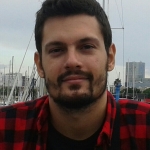
Konstantinos Michos is a PhD student in the Interactive Technologies Group at the Information and Communication Technologies Department of the Universitat Pompeu Fabra in Barcelona. He received his B.Sc in Teaching from the University of Thessaly in Greece and his M.Sc in Educational Technology from the University of Saarland in Germany. His research interests lie in the fields of Computer Supported Collaborative Learning, Learning Design and Learning Analytics. Konstantinos investigates support for informal learning in online communities of practice as well as technologies for effective learning and teaching in blended and online environments.

Pablo Abenia is a research assistant in the GTI Learning group. He received the Technical Engineering Degree in Multimedia and the Technical Engineering Degree in Computer Science in UPF. He is currently working in the development and evaluation of LdShake and ILDE, online social platforms enabling teachers the creation, co-edition and sharing of Learning Designs. Pablo’s main interests are centered in the development of meaningful technologies enhancing education.

Marc Beardsley is a PhD candidate in the Interactive Technologies Group, Department of Information and Communications Technologies at Universitat Pompeu Fabra – Barcelona (UPF). He has a Bachelor of Commerce from the University of British Columbia, Canada, a Master in Cognitive Systems and Interactive Media from UPF, is a certified Project Management Professional (PMP), and has worked professionally in Vancouver, Bangkok, and Tokyo. His research interests lie in the fields of Learning Sciences, Learning Design, and Ethics.
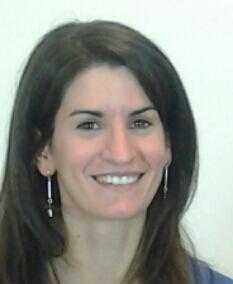
Laura Serra Oliva is a PhD candidate in the Interactive Technologies Group in the Department of Information and Communication Technologies at Universitat Pompeu Fabra. After obtaining her Bachelor´s degree in Industrial Design at Elisava she has completed her MSc on Cognitive Systems and Interactive Media (CSIM) and has worked as a research intern at the Institute for Creative Technologies of the University of Southern California. Her prior research interests has spanned a broad range of activities in interdisciplinary work.

Ishari Amarasinghe is a PhD candidate in Interactive Technologies Group in the Department of Information and Communication Technologies at Universitat Pompeu Fabra, Barcelona. She received her masters in Intelligent interactive Systems from Universitat Pompeu Fabra. Her Master thesis work was related to “Intelligent Group Formation in CSCL Scripts” which has sparked her interest in Interdisciplinary research. Prior to Masters she received her BSc in Information and Communication Technologies (First Class) from University of Colombo School of Computing, Sri Lanka. Her main research interests include Machine Learning, Data Driven Social Analytics and Learning Analytics.
Dai Griffiths